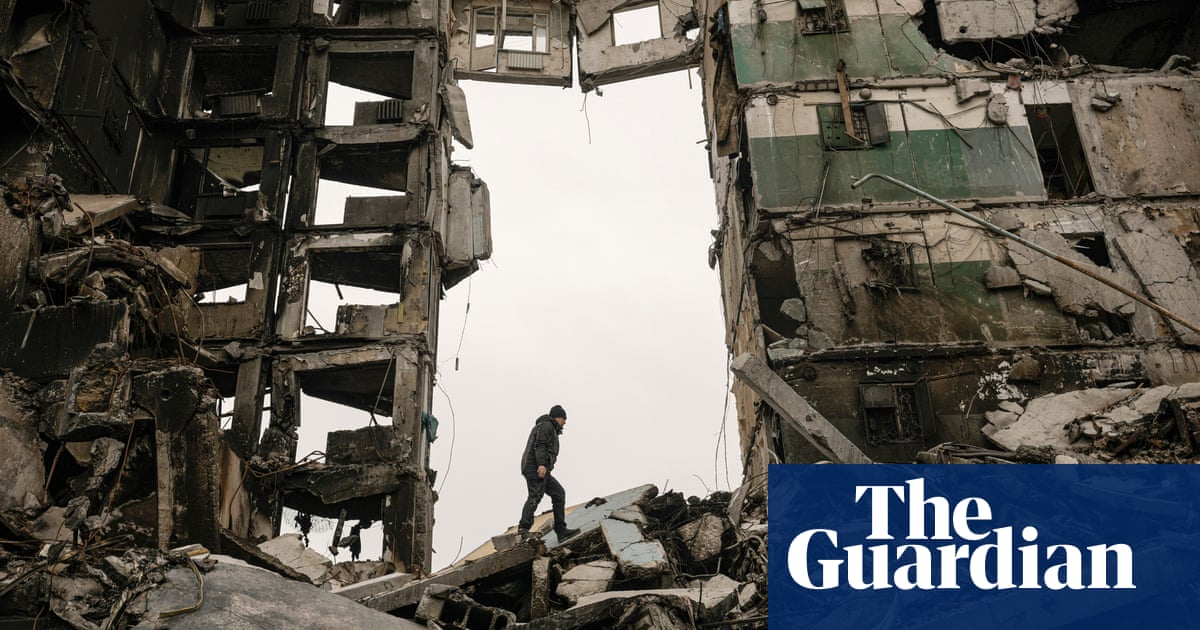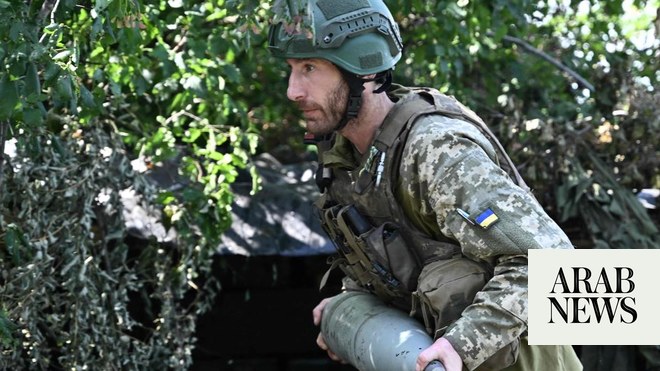
LONDON: The majority of people in the Arab world have no stance on the Russia-Ukraine conflict, a striking finding from a region that has been directly economically impacted by the war, a new Arab News-YouGov survey has found.
Out of 7,835 respondents from the Arab world, 66 percent did not have a view on the Russia-Ukraine conflict, compared with 18 percent who sided with Ukraine, and 16 percent who sided with Russia.
“When you talk about public opinion, it’s much more about everyday life, in that sense the conflict is further away, it’s further away than issues that are much more important and much more immediate,” Tobias Brock, associate fellow and Middle East expert at the Royal United Services Institute, told Arab News.
“The conflict is, first of all, geographically farther away than the war in Syria, or the conflict in Yemen, or the conflict in Libya or what is going on in Israel and Palestine right now,” he said.
Brock, with Jack Senogles, recently wrote a paper on the implications of the Russia-Ukraine war for countries in the MENA region. In their paper, the authors explain that “most Middle Eastern states have been so slow off the mark in formulating their positions vis-a-vis Russia and its war.”Experts highlight that general Arab opinion might be echoing the perspectives of their respective governments, which also see the war as a European conflict.
The survey also reveals that the majority of respondents who sided with Russia came mainly from 4 out of 14 countries surveyed: Algeria (19 percent), Oman (19 percent), Qatar (19 percent) and Tunisia (18 percent).
Meanwhile in Jordan, respondents who did take a stand were divided equally (13 percent) between Russia and Ukraine.
Both Ukraine and Russia are among the top wheat exporters in the world (about 29 percent of global supply), and on which many countries in the Arab region depend. One would assume, for example, that Egyptians — who source 85 percent of their wheat from Russia and Ukraine combined — would be more opinionated about the conflict.
Among the Gulf states, 22 percent of respondents sided with Ukraine, compared with 15 percent with Russia. While the difference is somewhat insignificant, two Gulf states stand out for favoring Russia over Ukraine, namely Oman and Qatar, both with 19 percent of respondents favoring Russia.
Oman and Russia have enjoyed good bilateral relations, particularly in the past few years as Muscat seeks to diversify its relations with non-Western powers. Trade between both countries have also increased significantly, growing by 62 percent in 2018.
In early May, Russian Foreign Minister Sergey Lavrov visited Oman to discuss trade. The two countries have announced a wide package of bilateral agreements, including a mutual visa exemption program.
Much like other Arab states, Oman did not take a concrete stance on the Russia-Ukraine conflict but affirmed its position that the two countries should reach political and diplomatic solutions through dialogue.
While state attitudes do not necessarily determine how the general public will side in a conflict, experts believe that sometimes public opinion mirrors state behavior, which might explain the slightly higher than average position of Oman on the Russia-Ukraine war.












